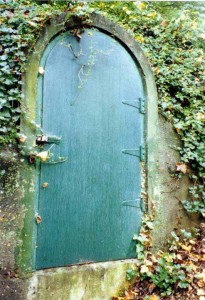For a decade, I served as sole, unpaid caregiver to my mother who suffered from dementia. She died in April 2012 at 97.
At the inception, I had moved out of my Southern California apartment, put all my belongings in storage, and embarked on a vacation to visit family in Delaware before returning to California and moving into a new apartment.
As soon as I arrived in Delaware, in October 2001, and saw my mother, I realized she needed help. There was no one but me, no other family. I would have to stay in Delaware. My lifestyle and the self I knew ceased to exist thenceforth. Ultimately, my mother was diagnosed with dementia. I researched all her care options and determined the best was to keep her at home.
I arrived in Delaware with few clothes and no winter coat. I was given a hand-me-down coat, and I cobbled together part-time jobs – the only jobs available to me at age 60 – with writing freelance feature stories for the city newspaper and local magazines. Eventually my mother’s condition required my attending her 24/7. I had to quit my jobs. By then, I had turned 65 and begun receiving Social Security benefits.
During these years, our car quit running and I couldn’t afford to replace it.
When my mother died, most of the income needed to pay the mortgage and otherwise support our home went with her.
In the 18 months following her death, I went in circles with the mortgage bank desperate to prevent their foreclosing on my home. A few months ago, I received outside help temporarily. Since then, heating oil expenses, amounting to $100 a week during the winter months, render my remaining income insufficient to get me through the month. This is unsettling, need I say.
I have written and published two books, under my pen name, Samantha Mozart, describing my mother’s and my journey through her dementia. I need the time to find ways to market and promote my books, thus to increase their sales and my royalties. I hope to publish more books.
In May 2011, I began writing this blog, under this same pen name, telling my mother’s and my story and have now evolved the blog to focus on literary essays and storytelling. I intend to expand this blog into a nonprofit foundation advocating storytelling and the humanities. In our current society, there is a perceived need for raising awareness and education of the humanities.
My nonprofit will qualify me to receive grants to give presentations and talks on my written works, on caregiving and dementia, and to establish venues supporting and promoting storytelling and education in the humanities. I have first to lift myself out of my hole and then many steps to take to realize my intended goals.
Meanwhile, I walk to the store. I need a car. A car will allow me to go out and make presentations on my books and caregiving, to lead writers workshops.
Additionally, I must bring my belongings out of storage in California. Doing so will enable me to apply these monthly payments towards other requirements. My writing files, including research materials, and my library of books are in storage. Clearly, as a writer I need these.
I have always been able to take care of myself. So I find it humiliating to have to ask for help. I should be helping others. But this hole is too deep to climb out of by myself. I am at the end of my rope.
Consequently, if you wish to help me dig out of my hole and go forward to educate others in storytelling, literacy and the humanities, please donate through the PayPal button in the right sidebar of this page.
I am not requesting these funds directly from my close friends. Were that my intention, I would have done so long ago. Therefore, I ask that you share my request with others in a position to help.
I am grateful for any assistance granted me, including your thoughts and prayers.
–Samantha Mozart





